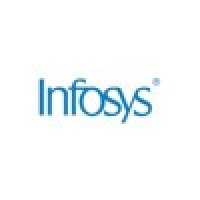- Afghanistan
- Åland Islands
- Albania
- Algeria
- American Samoa
- Andorra
- Angola
- Anguilla
- Antarctica
- Antigua and Barbuda
- Argentina
- Armenia
- Aruba
- Australia
- Austria
- Azerbaijan
- Bahamas
- Bahrain
- Bangladesh
- Barbados
- Belarus
- Belgium
- Belize
- Benin
- Bermuda
- Bhutan
- Bolivia
- Bonaire, Sint Eustatius, and Saba
- Bosnia and Herzegovina
- Botswana
- Bouvet Island
- Brazil
- British Indian Ocean Territory
- British Virgin Islands
- Brunei
- Bulgaria
- Burkina Faso
- Burundi
- Cambodia
- Cameroon
- Canada
- Cape Verde
- Cayman Islands
- Central African Republic
- central square ny
- Chad
- Chile
- China
- Christmas Island
- Cocos [Keeling] Islands
- Colombia
- Comoros
- Cook Islands
- Costa Rica
- Croatia
- Cuba
- Curaçao
- Cyprus
- Czech Republic
- Congo - Kinshasa
- Denmark
- Djibouti
- Dominica
- Dominican Republic
- Timor-Leste
- Ecuador
- Egypt
- El Salvador
- Equatorial Guinea
- Eritrea
- Estonia
- Ethiopia
- Falkland Islands
- Faroe Islands
- Fiji
- Finland
- France
- French Guiana
- French Polynesia
- French Southern Territories
- Gabon
- Gambia
- Georgia
- Germany
- Ghana
- Gibraltar
- Greece
- Greenland
- Grenada
- Guadeloupe
- Guam
- Guatemala
- Guernsey
- Guinea
- Guinea-Bissau
- Guyana
- Haiti
- Heard Island and McDonald Islands
- Honduras
- Hong Kong SAR China
- Hungary
- Iceland
- India
- PAN (Presence Across Nation)
- Indonesia
- Iran
- Iraq
- Ireland
- Isle of Man
- Israel
- Italy
- Côte d’Ivoire
- Jamaica
- Japan
- Jersey
- Jordan
- Kazakhstan
- Kenya
- Kiribati
- Kosovo
- Kuwait
- Kyrgyzstan
- Laos
- Latvia
- Lebanon
- Lesotho
- Liberia
- Libya
- Liechtenstein
- Lithuania
- Luxembourg
- Macau SAR China
- Macedonia
- Madagascar
- Malawi
- Malaysia
- Maldives
- Mali
- Malta
- Marshall Islands
- Martinique
- Mauritania
- Mauritius
- Mayotte
- Mexico
- Micronesia
- Moldova
- Monaco
- Mongolia
- Montenegro
- Montserrat
- Morocco
- Mozambique
- Myanmar [Burma]
- Namibia
- Nauru
- Nepal
- Netherlands
- Netherlands Antilles
- New Caledonia
- New Zealand
- Nicaragua
- Niger
- Nigeria
- Niue
- Norfolk Island
- North Korea
- Northern Mariana Islands
- Norway
- Oman
- Pakistan
- Palau
- Palestinian Territories
- Panama
- Papua New Guinea
- Paraguay
- Peru
- Philippines
- Pitcairn Islands
- Poland
- Portugal
- Puerto Rico
- Qatar
- Congo - Brazzaville
- Réunion
- Romania
- Russia
- Rwanda
- Saint Barthélemy
- Saint Helena
- Saint Kitts and Nevis
- Saint Lucia
- Saint Martin
- Saint Pierre and Miquelon
- Saint Vincent and the Grenadines
- Samoa
- San Marino
- São Tomé and Príncipe
- Saudi Arabia
- Senegal
- Serbia
- Serbia and Montenegro
- Seychelles
- Sierra Leone
- Singapore
- Sint Maarten
- Slovakia
- Slovenia
- Solomon Islands
- Somalia
- South Africa
- South Georgia and the South Sandwich Islands
- South Korea
- South Sudan
- Spain
- Sri Lanka
- Sudan
- Suriname
- Svalbard and Jan Mayen
- Swaziland
- Sweden
- Switzerland
- Syria
- Taiwan
- Tajikistan
- Tanzania
- Thailand
- Togo
- Tokelau
- Tonga
- Trinidad and Tobago
- Tunisia
- Turkey
- Turkmenistan
- Turks and Caicos Islands
- Tuvalu
- U.S. Virgin Islands
- Uganda
- Ukraine
- United Arab Emirates
- United Kingdom
- United States
- U.S. Minor Outlying Islands
- Uruguay
- Uzbekistan
- Vanuatu
- Vatican City
- Venezuela
- Vietnam
- Wallis and Futuna
- Western Sahara
- Yemen
- Zambia
- Zimbabwe
Assistant Manager
Job Overview
Bengaluru, Karnataka
Full Time
10 months ago
Additional Details
27525
142
Job Description
Key Responsibilities:
Outcome-Driven Accountability: Embrace and drive a culture of accountability for customer and business outcomes. Develop performance engineering solutions (e.g., performance test plans, load and stress testing, performance tuning, root cause analysis, etc.) that solve complex problems with valuable outcomes to meet customer needs and business impact KPIs.
Technical Leadership and Advocacy: Serve as the performance engineering advocate for products, ensuring performance SLAs are at the forefront of every discussion and during every sprint with a focus on appropriateness, feasibility, and alignment with business and customer goals, NFRs, and applicable performance engineering standards.
Engineering Craftsmanship: Maintain accountability for the integrity of performance test design and automation, data setup, their ongoing maintenance and scale, as well as the performance feasibility of solutions. Stay hands-on, self-driven, and continuously learn new approaches, tools, techniques, and frameworks. Solve complex problems by employing various engineering techniques such as in-sprint performance testing, identify bottlenecks, root causes, and optimizations, adhering to defined standards and SLAs while evolving those as necessary.
Customer-Centric Engineering: Develop lean performance engineering solutions through rapid, inexpensive experimentation to solve customer needs. Engage with customers and product teams before, during, and after delivery to ensure the right solution is delivered at the right time.
Incremental and Iterative Delivery: Adopt a mindset that favors action and evidence over extensive planning. Utilize a leaning-forward approach to navigate complexity and uncertainty, delivering lean, supportable, and maintainable solutions.
Cross-Functional Collaboration and Integration: Work collaboratively with empowered, cross-functional teams including product management, experience, engineering, delivery, infrastructure, and security. Integrate diverse perspectives to make well-informed decisions that balance performance, feasibility, viability, usability, and value. Foster a collaborative environment that enhances team synergy and innovation.
Advanced Technical Proficiency: Possess intermediate knowledge in modern performance engineering practices and principles, including Agile methodologies and DevSecOps to deliver daily product deployments using techniques such as fully automated in-sprint performance testing to accept the stories and work products throughout the SDLC lifecycle. Strive to be a role model, leveraging these techniques to optimize solutioning and product delivery. Demonstrate an understanding of the full lifecycle product development, focusing on continuous improvement and learning.







